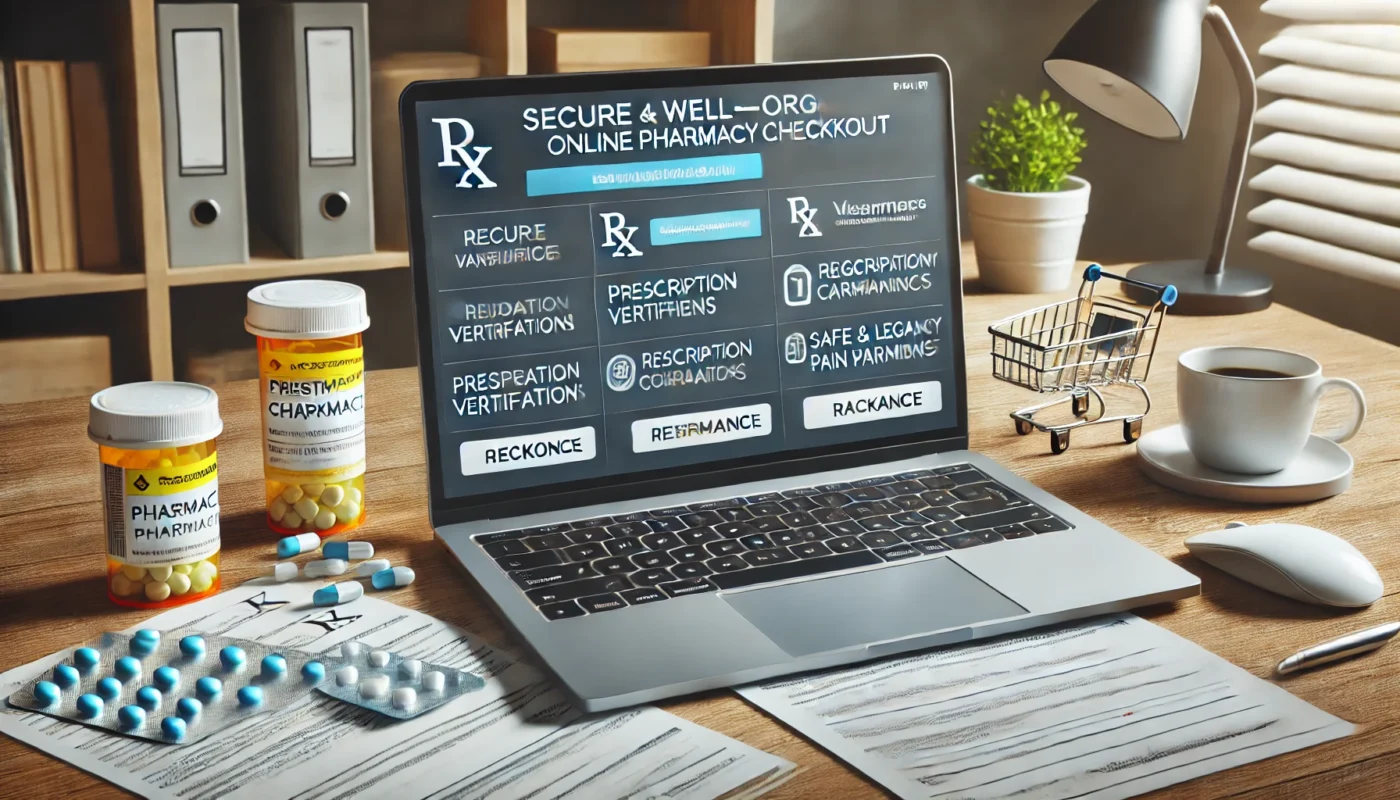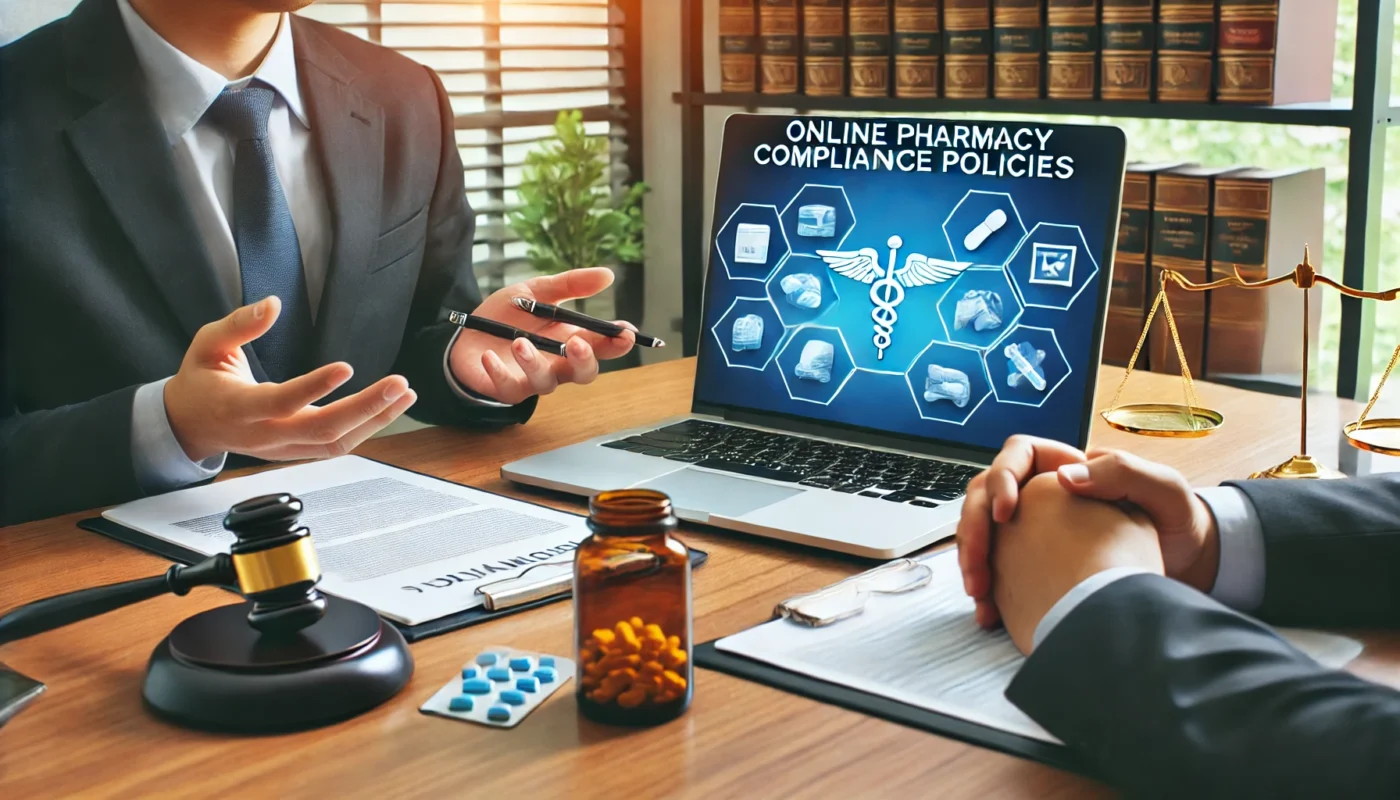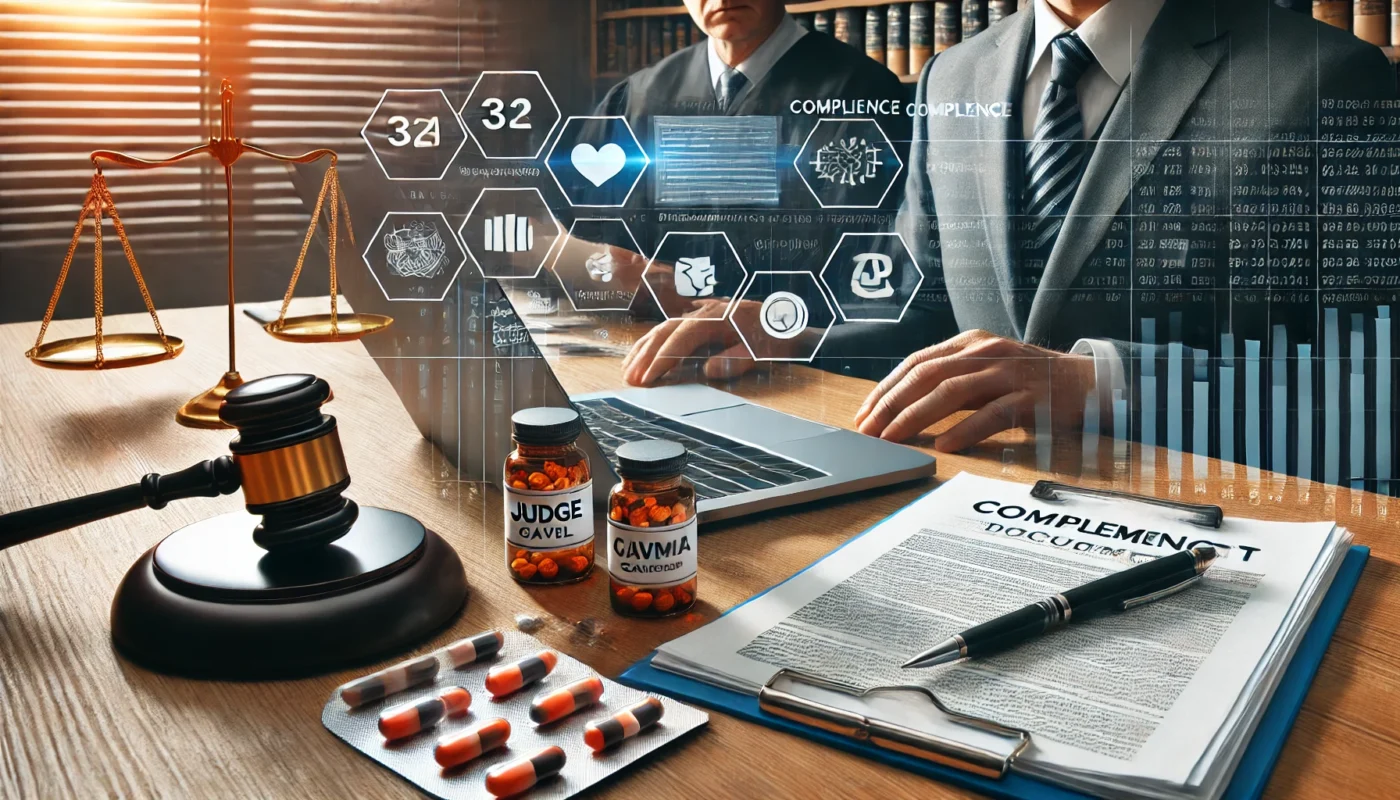Navigating the world of online pain medication can be daunting, especially with the myriad of regulations and potential legal pitfalls. This article aims to provide clarity on the legal considerations for purchasing pain pills online, ensuring that you stay informed and compliant while managing your health needs.
You may also like: Understanding Long-Term Pain Relief Options
Understanding the Legal Landscape of Online Pain Medication
In recent years, the internet has revolutionized how we access healthcare, including the purchase of pain medication. However, with convenience comes responsibility, particularly in understanding the legal ramifications. Let’s delve into the key aspects you need to be aware of when considering buying pain medication online.
The Legality of Buying Pain Pills Online
When contemplating the purchase of pain medication online, it’s crucial to understand that legality varies significantly depending on the jurisdiction. In many countries, purchasing prescription medications without a valid prescription from a licensed healthcare provider is illegal. This is a critical point to consider as you explore your options.
Jurisdictional Variations
Different countries and even regions within the same country may have varying laws regarding the purchase of prescription medications online. For instance, while some places allow online purchases from international pharmacies, others restrict it strictly to local sources. Understanding these jurisdictional differences is crucial for staying compliant.
The Role of International Treaties
International treaties, such as those governed by the World Health Organization, can influence the legality of purchasing medications across borders. These treaties aim to combat the illegal drug trade and ensure that medications are distributed safely and legally. Familiarizing yourself with these agreements can provide further insight into your legal standing.
Penalties for Non-Compliance
Failing to comply with these legal requirements can result in significant penalties, including fines and criminal charges. Being aware of the potential consequences can serve as a deterrent against attempting to circumvent the law. Legal advice can be invaluable if you’re unsure about the regulations in your area.
Prescription Requirements
One of the primary legal stipulations involves obtaining a legitimate prescription. Online pharmacies should require a prescription from a licensed practitioner. This step ensures that the medication is appropriate for your condition and helps mitigate potential misuse or abuse.
The Prescription Process
The process of obtaining a prescription involves a consultation with a healthcare provider who assesses your medical history and current health condition. This evaluation is crucial in determining the appropriate medication and dosage. Skipping this step increases the risk of receiving inappropriate treatment.
Electronic Prescriptions
Many healthcare systems now allow for electronic prescriptions, which are sent directly to the pharmacy. This advancement simplifies the process and reduces the risk of prescription forgery. Understanding how electronic prescriptions work can streamline your online purchasing experience.
Legal Implications of Forged Prescriptions
Attempting to use a forged prescription is illegal and can lead to severe legal consequences. Online pharmacies are equipped to verify the authenticity of prescriptions, and attempting to bypass this system is risky. Always ensure your prescriptions are legitimate and obtained through the proper channels.
Recognizing Legitimate Online Pharmacies
Distinguishing between legitimate and fraudulent online pharmacies can be challenging. The FDA and other regulatory bodies provide guidelines to help consumers identify trustworthy sources. Key indicators of a legitimate online pharmacy include:
- Requiring a valid prescription
- Displaying a physical address and contact information
- Being licensed by relevant health authorities
- Offering consultation with a licensed pharmacist
Verification Tools
Several online tools and databases are available to verify the legitimacy of an online pharmacy. These resources can help you determine whether a pharmacy is licensed and in good standing. Utilizing these tools can provide peace of mind and ensure you are purchasing from a reputable source.

Importance of Accreditation
Accreditation by recognized bodies, such as the National Association of Boards of Pharmacy, is a strong indicator of a pharmacy’s legitimacy. Accredited pharmacies adhere to strict safety and legal standards, ensuring that your medication is both safe and legal.
Warning Signs of Fraudulent Pharmacies
Fraudulent pharmacies may offer medications without prescriptions, lack contact information, or have unreasonably low prices. Recognizing these warning signs can help you avoid scams and ensure you’re purchasing from a legitimate source. Always conduct thorough research before making a purchase.
Risks of Illegitimate Online Pharmacies
Illegitimate online pharmacies often bypass legal requirements, posing significant health risks. These risks include receiving counterfeit or substandard medications, which can lead to ineffective treatment or harmful side effects. Moreover, purchasing from these sources can expose you to legal consequences.
Health Risks
The health risks associated with counterfeit medications include incorrect dosages, harmful ingredients, and reduced efficacy. These dangers can exacerbate existing health conditions or cause new health issues. It’s crucial to ensure your medications come from a reputable source to avoid these risks.
Financial Risks
Purchasing from illegitimate pharmacies can also result in financial loss. Counterfeit medications may not only be ineffective but also costly, leading to wasted resources. Additionally, fraudulent pharmacies may engage in credit card fraud, putting your financial information at risk.
Legal Risks
Engaging with fraudulent pharmacies can expose you to legal risks, including potential prosecution for purchasing controlled substances without a prescription. Understanding these risks underscores the importance of adhering to legal channels when purchasing medication online.
Ensuring Safe Online Purchases
To ensure your safety and legal compliance, consider the following strategies when purchasing pain medication online:
Verify the Pharmacy’s Credentials
Before making a purchase, verify the online pharmacy’s credentials. Look for accreditation from recognized organizations such as the National Association of Boards of Pharmacy (NABP) or equivalent bodies in your country. These accreditations indicate adherence to safety and legal standards.
Checking Licenses
Verifying a pharmacy’s license with relevant authorities is a critical step in ensuring its legitimacy. This process can often be done online, providing a quick and easy way to confirm the pharmacy’s legal standing. Always prioritize this step before proceeding with a purchase.
Understanding NABP Accreditation
The National Association of Boards of Pharmacy provides accreditation to pharmacies that meet high standards of safety and legality. Understanding the significance of this accreditation can guide you in selecting a trustworthy pharmacy. Always look for the NABP seal on pharmacy websites.
Cross-Checking Information
Cross-checking the information provided by the pharmacy with external sources can help verify its authenticity. This includes confirming the physical address and contact details. Taking these precautions can protect you from potential scams and fraudulent activities.
Consult with Healthcare Professionals
Consulting with healthcare professionals is essential, not only for obtaining a valid prescription but also for understanding the appropriate use of the medication. A healthcare provider can guide you on the correct dosage, potential interactions with other medications, and any side effects you should be aware of.
Importance of Medical Guidance
Medical guidance is crucial in ensuring the safe and effective use of pain medication. Healthcare professionals can provide personalized advice based on your medical history and current health status. This tailored approach helps prevent adverse reactions and ensures optimal treatment outcomes.
Discussing Side Effects
Understanding potential side effects is an important aspect of medication management. Healthcare professionals can inform you of possible side effects and advise on how to manage them. This knowledge empowers you to make informed decisions about your treatment.

Medication Interactions
Medication interactions can pose serious health risks. Consulting with healthcare professionals allows you to identify potential interactions with existing medications. This proactive approach can prevent harmful effects and ensure the safety of your treatment plan.
Be Cautious of Prices That Seem Too Good to Be True
While it’s natural to seek competitive prices, be cautious of prices that seem unusually low. Extremely low prices can be a red flag indicating counterfeit or illegally sourced medications. It’s essential to balance cost considerations with the assurance of quality and legality.
Price Comparisons
Conducting price comparisons across multiple reputable pharmacies can help identify standard pricing for medications. This strategy can highlight prices that are suspiciously low, allowing you to avoid potential scams. Always ensure you’re paying a fair price for quality medication.
The Cost of Counterfeits
Counterfeit medications are often sold at significantly reduced prices, but the cost of consuming such products can be high. Ineffective or harmful medications can lead to additional healthcare expenses. Prioritizing quality over cost is essential in ensuring safe treatment.
Balancing Cost and Quality
While it’s important to consider cost, quality should never be compromised. Investing in legitimate, high-quality medications ensures effective treatment and peace of mind. Always choose pharmacies that prioritize safety and legality over low prices.
Legal Implications of Purchasing Pain Pills Online
Understanding the legal implications of online purchases is vital in avoiding potential legal troubles.
Potential Legal Consequences
Purchasing pain medication from illegitimate sources can result in legal consequences such as fines, criminal charges, or even imprisonment. It’s crucial to adhere to legal requirements, including obtaining a valid prescription and purchasing from licensed pharmacies.
Understanding Legal Liabilities
Understanding your legal liabilities when purchasing medication online is essential. This knowledge can help you avoid actions that may inadvertently violate the law. Legal advice may be beneficial in navigating these complexities.
Legal Precedents
Familiarizing yourself with legal precedents related to online medication purchases can provide insight into potential consequences. These cases highlight the importance of adhering to legal channels. Learning from past examples can guide your decision-making process.
Avoiding Legal Pitfalls
Avoiding legal pitfalls involves understanding and complying with all relevant laws and regulations. This includes ensuring prescriptions are valid and purchases are made from licensed sources. Proactively addressing these issues can prevent legal complications.
Protecting Your Personal Information
When purchasing online, safeguarding your personal information is paramount. Ensure that the pharmacy’s website uses secure encryption methods to protect your data. Avoid sharing sensitive information on unsecured platforms to prevent identity theft or fraud.
Importance of Encryption
Encryption is a critical aspect of online security, protecting your personal and financial information. Ensure that the pharmacy’s website uses HTTPS protocols, indicating secure encryption methods. This precaution helps prevent unauthorized access to your data.
Recognizing Secure Websites
Identifying secure websites involves looking for security indicators, such as a padlock symbol in the address bar. These signs indicate that the website employs robust security measures. Only provide personal information on websites that demonstrate these security features.
Data Privacy Policies
Understanding a pharmacy’s data privacy policies can provide insight into how your information is used and protected. Reputable pharmacies will have transparent policies outlining data protection measures. Reviewing these policies ensures your information is handled responsibly.
Regulatory Compliance
Adhering to regulatory compliance involves understanding the specific laws and regulations in your jurisdiction. Regulations may vary, so familiarize yourself with local laws regarding online medication purchases to ensure compliance.
Understanding Local Regulations
Local regulations governing online medication purchases can vary significantly. Understanding these laws is crucial in ensuring compliance and avoiding legal issues. Researching local regulations can provide clarity and guide your purchasing decisions.
The Role of Regulatory Bodies
Regulatory bodies play a critical role in overseeing online pharmacies and ensuring compliance with safety and legal standards. Familiarizing yourself with the role of these bodies can help you identify reputable pharmacies. Trustworthy pharmacies will adhere to the guidelines set by these organizations.
Staying Updated with Regulatory Changes
Regulatory changes can impact the legality of purchasing medications online. Staying informed about these changes ensures ongoing compliance with legal requirements. Regularly checking for updates can help you adapt to new regulations and maintain legal standing.
Conclusion: Making Informed Decisions
Purchasing pain medication online offers convenience but requires careful consideration of legal and safety aspects. By understanding the legal landscape, recognizing legitimate pharmacies, and consulting healthcare professionals, you can make informed decisions that prioritize both your health and legal compliance.
In a world where online transactions are increasingly common, staying informed and vigilant ensures that you can manage your health needs safely and legally. Always prioritize your well-being by choosing reputable sources and adhering to legal requirements.
Seeking Professional Guidance
Remember, when in doubt, consult with a healthcare professional or legal advisor to guide you through the complexities of online pain medication purchases. Your health and legal safety are paramount.
Prioritizing Health and Safety
Always prioritize your health and safety by making informed decisions. This involves choosing legitimate pharmacies, obtaining valid prescriptions, and consulting healthcare professionals. By doing so, you ensure effective and safe treatment.

Embracing Legal Compliance
Embracing legal compliance not only protects you from legal repercussions but also ensures access to quality medications. By adhering to legal requirements, you contribute to a safer and more regulated online marketplace. Stay informed and proactive in your purchasing decisions.
Further Reading:
Over-the-counter pain relievers
Scientists Take Another Step Toward Creating Better Pain Medications
Counterfeit medications, online pharmacies, legal implications, pain medication, healthcare expenses, quality medications, prescription drugs, data privacy, regulatory compliance, online security, encryption, personal information protection, legitimate pharmacies, health and safety, legal compliance, healthcare professionals
Important Note: The information contained in this article is for general informational purposes only, and should not be construed as health or medical advice, nor is it intended to diagnose, prevent, treat, or cure any disease or health condition. Before embarking on any diet, fitness regimen, or program of nutritional supplementation, it is advisable to consult your healthcare professional in order to determine its safety and probable efficacy in terms of your individual state of health.
Regarding Nutritional Supplements Or Other Non-Prescription Health Products: If any nutritional supplements or other non-prescription health products are mentioned in the foregoing article, any claims or statements made about them have not been evaluated by the U.S. Food and Drug Administration, and such nutritional supplements or other health products are not intended to diagnose, treat, cure, or prevent any disease.

